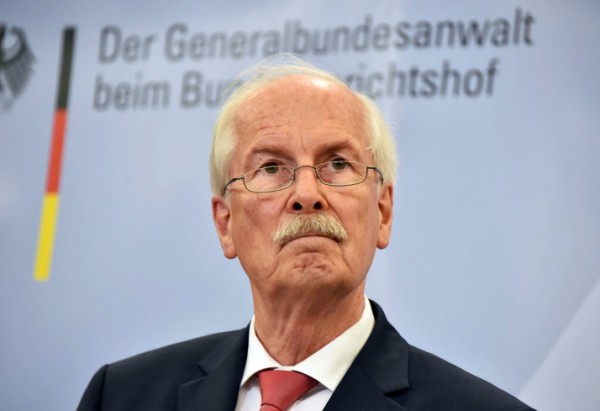
Germany’s justice minister has fired the country’s top public prosecutor, Harald Range, for launching a controversial investigation for treason against two journalists who published secret government documents about alleged plans for Internet surveillance.
Range’s probe into the political and tech news website Netzpolitik.org sparked an outcry in Germany, where state secrecy is a sensitive issue because of the activities of the Gestapo in the Nazi era and of the Stasi under the East German communists.
Justice Minister Heiko Maas announcedon Tuesday that, in agreement with Chancellor Angela Merkel’s office, he had requested that Range step down from the post of federal prosecutor, saying his credibility in the role had been undermined. Range’s replacement will be the Munich public prosecutor, Peter Frank.
Range had already suspended his investigation into Netzpolitik’s editor and owner Markus Beckedahl and journalist Andre Meister, pending an independent expert opinion on the level of secrecy of the documents they leaked. He had complained of political meddling, especially by the Justice ministry, in his investigation.
The investigation into Beckedahl and Meister prompted public demonstrations of support and an uproar on social media, where the German world for treason — #Landesverrat (#treason) — immediately trended on Twitter.
In a statement on their website, Beckedahl and Meister said they believed “the charges against our alleged source(s) were politically motivated and targeted to crush the necessary public debate about Internet surveillance Post-Snowden.”
Germany has been particularly affected by the intelligence leaks by former U.S. security contractor Edward Snowden, which showed that the U.S. National Security Agency had carried out large-scale surveillance on public and business figures in Germany, including Merkel’s telephone.
The articles published by Netzpolitik, in February and April this year, suggested that Germany’s own intelligence services are interested in carrying out similar kinds of surveillance activities on the Internet, if they are not doing so already.
The articles detailed “secret plans“ to monitor and collect a variety of Internet data, full texts of leaked surveillance budgets, and plans to create a new Internet surveillance department dedicated to improving and extending the government’s mass surveillance capabilities. It would be called the “Erweiterte Fachunterstützung Internet” or “Extended Specialist Support Internet” department.
The German Journalists Association has denounced the Netzpolitik case as an attack on freedom of the press.
The last time such charges were brought against a journalist in Germany was the so called “Spiegel Affair” in 1962, when the editor-in-chief of news magazine Der Spiegel was accused of treason by then defense minister Franz Josef Strauss for publishing secret documents about the German defense forces. This case was rejected by the German Federal Court.
POLITICO

Leave a Reply
You must be logged in to post a comment.